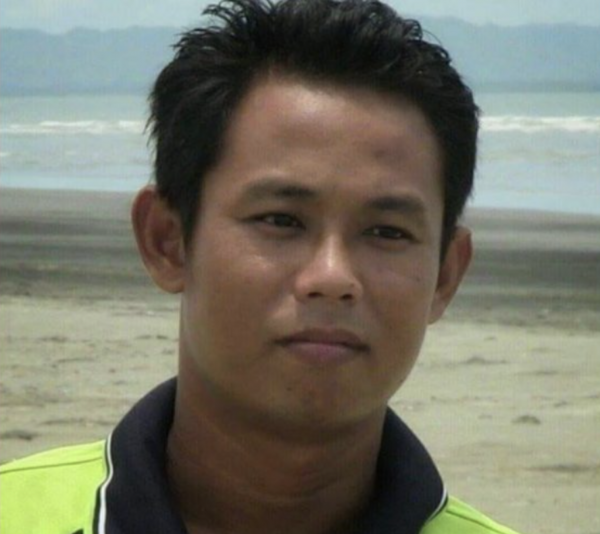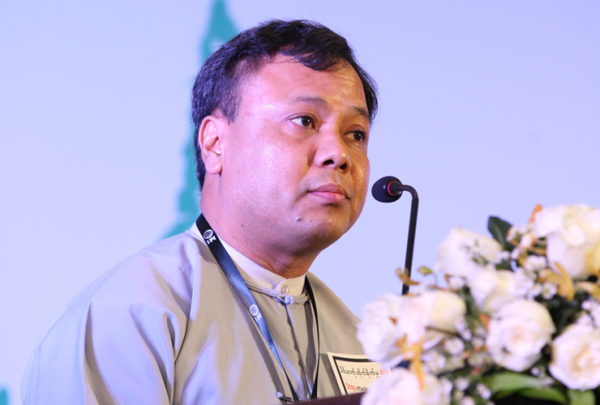In an interview with Radio Free Asia (RFA) on Friday, 7 October, Tint Swe, Deputy Director General of Burma’s Press Scrutiny and Registration Department (PSRD), stated: “Press censorship is non-existent in most other countries as well as among our neighbors and as it is not in harmony with democratic practices; press censorship should be abolished in the near future.” In the same interview, Tint Swe added that newspapers and other publications should accept press freedom with “responsibilities,” RFA reported.
Earlier this year, Burma’s censorship board – the PSRD – announced that publications would be allowed to circulate stories on sports, arts, health, children, and technology without previous PSRD approval. Publications covering news, economics, religion and crime must continue to submit their stories to the censorship board ahead of publication, according to the new regulation that came into force on 10 June.
In a related development, 46 Burmese political prisoners have been released in an amnesty this week, Mizzima News reported. Among them is Burmese comedian Zarganar, a well-known government critic, who was serving a 35-year prison for “public order offences” after police found him speaking to foreign media about the situation of millions of people left homeless after cyclone Nargis hit Burma in 2008.
IPI explored the possible significance of Tint Swe’s statements on Burma’s current political situation with exiled Burmese journalist and media expert Soe Myint.
Soe Myint is the editor-in-chief and managing director of Mizzima News Agency, an exile-based new agency dedicated to “promoting awareness about the ongoing situation in Burma and promoting democracy and freedom of expression in Burma by improving the flow of information in and out of the country and through advocacy and lobbying.” Mizzima News Agency was awarded the IPI Free Media Pioneer Award in 2007 in recognition of its efforts to promote the free flow of information about one of the most secretive countries in the world.
IPI: Tint Swe, who is deputy director General of Burma’s Press Scrutiny and Registration Department (PSRD), which is in charge of censorship in the country, reportedly told Radio Free Asia that he personally thinks that there should be “no prior censorship” of any publications in Burma. Was this news reported by media outlets inside Burma?
Soe Myint: In Burma, presently, there are two kinds of censorship: (1) publications on politics and news, for e.g., need to submit their stories to the censor board before actual publishing; (2) publications on health and education, for e.g., do not need to submit their publications prior to publishing but submit them to the censor board after publishing [and the censorship board has a right to fine them if they do not adhere to the guidelines of the censorship board]. What Tint Swe was saying was that he thinks there should be no “prior censorship”. I was told that some media in the country picked up this story and published it [I have not seen it yet].
IPI: How do you interpret such a statement by a high government official in view of Burma’s current political situation? What are its implications?
Soe Myint: I think this is his [Tint Swe] personal opinion as well as the opinion of a responsible official of the Censorship Board. But that does not mean much in terms of whether Burma will have no “censorship board” in the near future. It may mean that Burmese publications may not be required to submitted their articles to the censorship board prior to publishing but they may be required to submit them after publishing and action will be taken (such as a fine) if they violate the existing guidelines. The question is whether the government will relax or will abolish such guidelines as well as various laws that restrict and/or prevent the right to information and right to freedom of expression. His [Tint Swe] statement reflects, however, a growing thinking, and consultations within the government, aimed at trying to relax some restrictions and open up some so that the Burmese and international media can work in a more “relaxed way.” Moreover, it is also a fact for the Burmese government in general and the censorship board in particular that they are getting too occupied and busy with checking all these weekly publications, and there is a growing number of private publications coming up. So, obviously, they want to reduce their work as well.
IPI: How soon, if at all, can we expect an end to official direct censorship in Burma?
Soe Myint: It depends a great deal on the overall democratic political changes in the country. Burma is now in a “transitional period,” and it may take another 10 or 20 years for these changes to contribute to a stable democratic country. We should not forget that the constitution has invested wide-ranging power in the military within and outside of Parliament and no one can be sure of how the military will react to these current “moves and changes”.
IPI: Burma has reportedly recently lifted a ban on foreign and exile-Burmese websites as well as relaxed censorship rules. How have these changes affected journalism and the people’s ability to be informed in Burma?
Soe Myint: That move has had quite an impact on the readers inside the country, not only in terms of more Burmese being able to read this news and these websites but also keeping up the morale for people who seek to get the information that they want. It certainly helps keep the people more informed (though Internet users currently make up only one per cent of the total population). And this move has enriched the work of independent Burmese media organizations, which for several years had been blocked by the Burmese government.
IPI: Do you see a real change of attitude toward press freedom in Burma’s new government? Or are these merely attempts to please international donors and civil society expectations, while the general attitude continues to be a repressive one?
Soe Myint: This change of attitude or any small change taking place cannot be isolated from the democracy movement that has existed inside and outside the country for more than two decades. This is what Burma gains from the democratic movement (pressure from within and without, international donor support, a changing situation, all of which contribute to this.) Even if it is to please the international donors, for me, I think it is a good step in the right direction but there is really a lot to be done for the kind of freedom of expression and democracy that we understand and we want to practice. The authorities in power will likely continue such changes at their own pace but it is also largely up to those who struggle for change to determine how much faster these democratic norms and means will come into practice.


